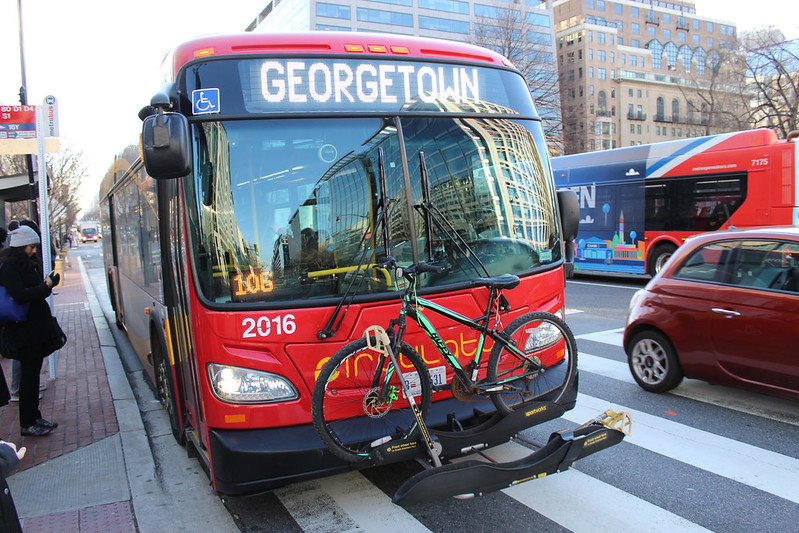Press Release
For immediate release
April 23, 2020
Contact: Stewart Schwartz
703-599-6437 (cell)
stewart@smartergrowth.net
Coalition for Smarter Growth Joins National Alliance To Tell White House:
Transit Workers Need Better Protection From COVID-19
Coalition for Smarter Growth and broad alliance of labor, business, and community advocates demand White House and CDC supply better protective equipment and guidance to safeguard the transit workforce who ensure other essential workers can provide medical care, food, and basic necessities.
Today, the Coalition for Smarter Growth joined dozens of unions, business groups, economic justice organizations, and local transit advocates from across the nation requesting Vice President Mike Pence and Dr. Deborah Birx, coordinator of the White House Coronavirus Task Force, strengthen federal coordination to provide personal protective equipment (PPE) for transit workers.
The Coalition for Smarter Growth also joined many other organizations in signing onto the NAACP’s letter urging Congress to pass relief funding and required hazard pay for transit workers.
As of this week, the coronavirus has claimed the lives of nearly 100 transit workers in the United States and 15 WMATA employees have tested positive as of April 6th.
The federal government can and must take stronger steps to prevent such loss of life.
Bus and train operators, maintenance workers, and cleaning staff at transit agencies in the DC region are putting their lives on the line as they enable essential travel and ensure the continued provision of food, medical care, and other basic goods and services during the COVID-19 pandemic. Without strong federal coordination to procure PPE for transit workers, they face needless risks on the job.
Based on guidance from infectious disease experts, the Coalition for Smarter Growth demands consistent provision of N95 masks and other protective gear for frontline transit workers whose duties put them in close proximity to passengers, or require exposure to hazardous disinfectants. The Coalition for Smarter Growth also urges the CDC to issue stronger guidance for WMATA and other transit agencies, including recommendations on how to ventilate transit vehicles to minimize the risk of COVID-19 transmission.
These measures must be put in place to protect the transit workforce, which in turn will strengthen the overall effort to control the pandemic and minimize the spread of COVID-19. Nearly 3 million Americans classified as essential workers typically commute on transit, according to a TransitCenter analysis of U.S. Census data.
Protective gear for transit workers will have a strong multiplier effect, since reducing risk will increase the availability of the transit workforce, leading to greater provision of transit service, less crowding on transit vehicles, and lower rates of transmission among transit riders and thus the general population.
The alliance signing on to the letter reflects the broad public interest in protecting transit workers, encompassing labor, business, transportation, economic justice, environmental, and community-based organizations from dozens of states.
Supply chain issues affect every industry seeking protective gear. However, the need for transit workers is so urgent, and the consequences of further delay so dire, that federal action must be pursued as soon as possible. These protections will save the lives of transit workers, as well as the lives of nurses, doctors, food distribution workers, and other essential workers who rely on transit.
The full letters from TransitCenter and the NAACP are linked.
###



